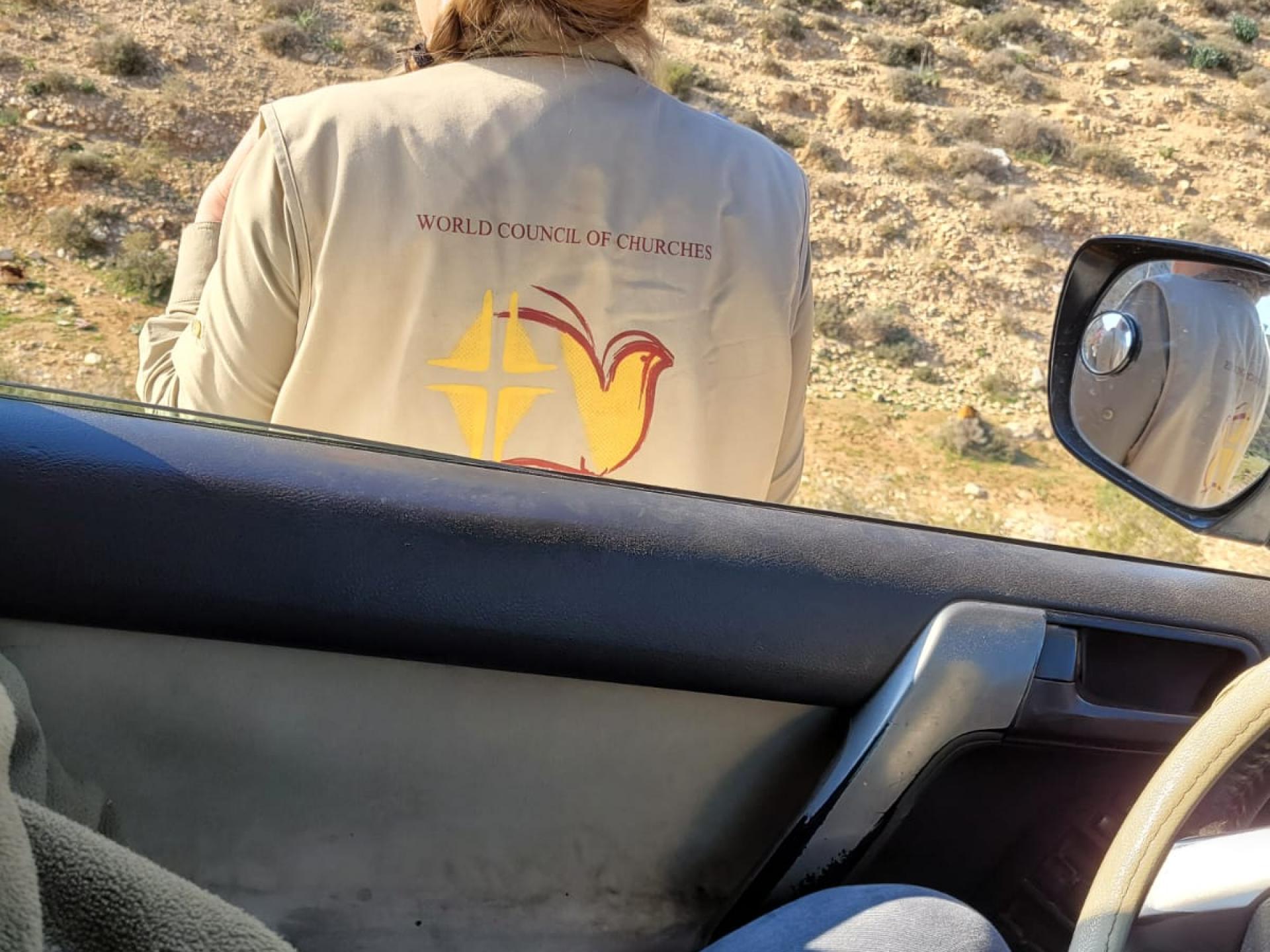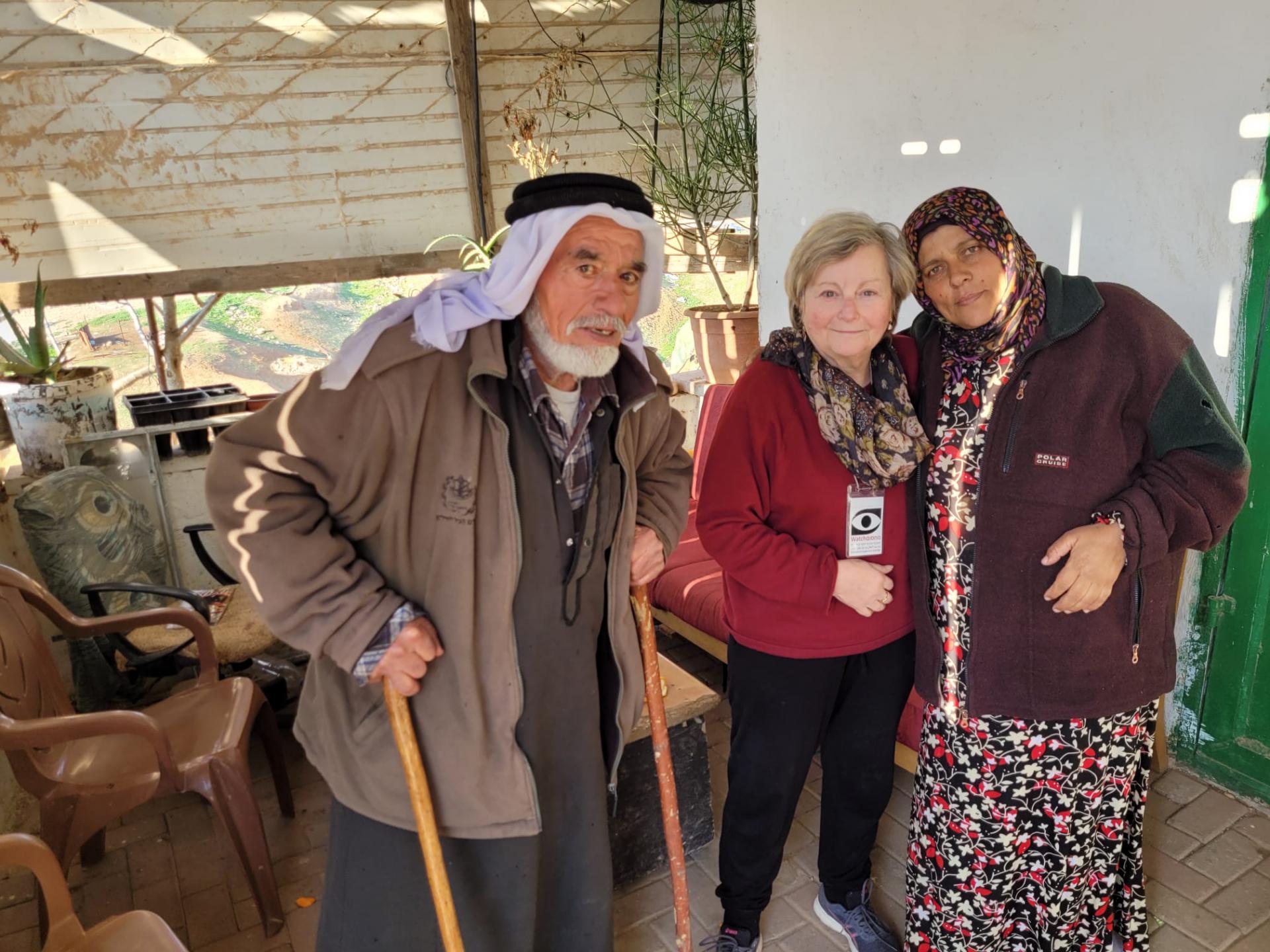Wadada al Foqa – harassment by the settler from Yinon’s farm
An unscheduled shift, due to fears of attacks by settlers
On Saturday afternoon Muhammad notified Machsom Watch’s southern WhatsApp group that he’d received an urgent phone call from Radwan, who lives in an area called Wadada Tahta (Lower Wadada), south of the Meitarim industrial zone and Zanuta, and bordering Yatir Forest to the north. We’ve reported in the past on frequent incursions and unending threats by setters from Meitarim Farm, belonging to Yinon, located opposite them, near Zanuta. Muhammad’s description of the area follows in a separate email.
That same morning Radwan saw three Palestinian surveyors, who’d arrived at his neighbor Ziad abu-Awwad’s land in Wadada al-Foqa (Upper Wadada, north of Lower Wadada). Six settlers came down from Yinon’s farm to the surveyors, beat them and chased them off. He witnessed that frightening violence so he tried to reach Israeli friends, including Muhammad. Fortunately, the settlers were satisfied with their brawl with the surveyors and with abu-Awwad, and left. Abu-Awwad didn’t see any point in calling the police – they never act against settlers. We’ve already reported settlers who’ve come on ATV’s to abu-Awwad’s compound, threatening him not to approach his lands.
Radwan said that earlier the same morning Saleh, his brother, asked volunteers from the World Council of Churches who apparently live in Yatta to escort him and his flock because of threats he’d received. Shortly after we’d started to leave, Salah’s flock returned, escorted by three volunteers. We spoke with one of them, a Finn. She told us they’ve been in the area for three months and this morning had been asked to escort Salah. They remained with him for six hours while the sheep grazed. They too submit reports on each of their shifts.
From there we drove to Abu Safi, to see how he was. We were pleased to see some of his children were on a visit. He is better after removing some fluid from his knee. We were received with their usual hospitality.


